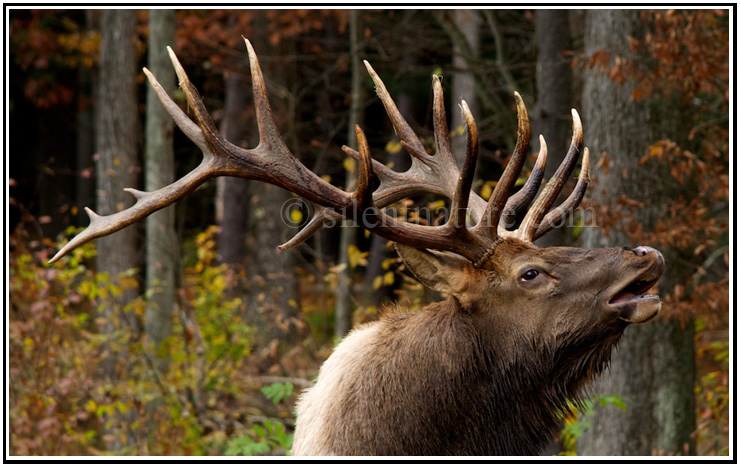| |
|
I quietly and carefully
placed my steps along the grass covered road that ran under the
power lines and cut through the Pennsylvania forest. My left hand gripped
my bow, while three fingers from my right hand held the string with the
knock of the arrow between them. My eyes carefully scanned for deer deep
into the trees and then along the narrow field that I was walking through.
Ordinarily I would sit and wait for the deer to come to me, but I was
still in transit. Then something unexpected happened. From out of the branches and
leaves on the edge of the forest stepped a massive bull elk. He walked
confidently onto the grass a mere twenty yards directly in front of me.
With monstrously strong antlers spreading into the air high above him, he
turned his head and looked me right in the eye. There was no hiding now...
for either one of us. Broadside, this would be an easy shot for me,
but fortunately for him, he was in protected status and I had no permit to
shoot. Exposed and vulnerable with no trees to duck behind, I was an easy
target for him, but fortunately for me he did not feel threatened or
challenged sufficiently to charge me. Instead, we both went about our own
ways.
I'm sure he passed on many decades ago, but he still lives vividly
in my memory on that magnificent autumn evening. As a teenager I
knew that elk had been planted in my neck of the woods, but what I didn't
realize then was that the process had begun a half a century earlier. Nor
did I realize that these elk were not the same as the elk that originally
roamed these forests over a century ago. The last Eastern elk was shot, and
the species subsequently became extinct, in 1887. Three decades later the
Pennsylvania Game Commission moved 177 Rocky Mountain elk into 10 of its
counties. That number would eventually grow to about 800 head and roam an
area of about 600 square miles. Over the past two decades six other
eastern states have also established successful populations of Rocky
Mountain elk within their boundaries. |
|
|
|

